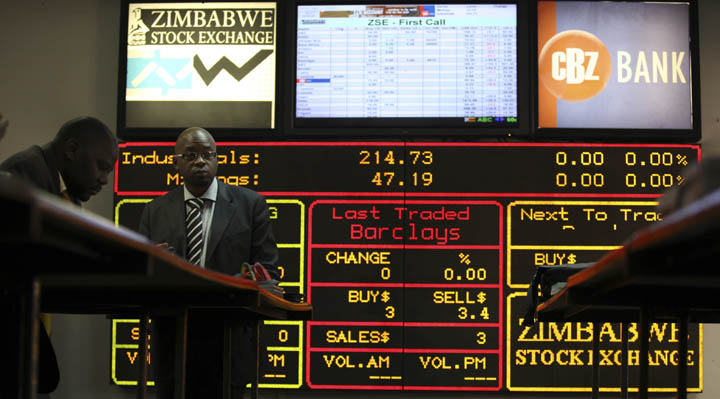The ZIMBABWE Stock Exchange (ZSE) is set to establish an alternative exchange for high potential Small and Medium Enterprises (SMEs) in Zimbabwe.
The ZSE is set to establish an alternative exchange for high potential Small and Medium Enterprises (SMEs) in Zimbabwe.
This comes on the heels of similar recent developments on the continent notably the Ghana and Dar es Salaam stock exchanges which have opened up windows for SMEs. The Johannesburg Stock Exchange (JSE) has had the JSE.
Alternative Exchange (AltX) which has appealed to startups, management buy-out and buy-in, black economic empowerment companies, family owned businesses and junior mining companies.
ZSE’s planned forays into attracting capital for SMEs is noble and augurs well with the recent developments whereby the bourse is at the verge of launching an automated trading system (ATS). It has contracted an Indian company, Infotech Middle East FZ-LLC to implement the ATS.
Caution should be exercised lest so much hype is placed on the alternative ZSE bourse for SMEs.
First and foremost the death in long term affordable capital for SMEs in Zimbabwe is a harbinger of more challenges that SMEs are going to face or are facing.
The dominance of foreign investors on the ZSE does not bode well for the future SME window on the bourse because foreigners are highly unlikely to trust little known companies.
Of the 67 listed companies, 62 are active with just about 10 counters dominating trading. More counters in the form of SMEs may not necessarily translate into more activity.
The performance of the banking sector, especially locally owned banks, does not build confidence in our locally owned companies especially the SMEs.
The fact that locally owned financial institutions have educated managers, state of the art IT, are audited by big five auditing firms and above all supervised by the Reserve Bank but still go bust makes it difficult for investors to trust some obscure SME operating from say Gweru.
This can militate against the capital raising mandate of the alternative exchange.
The levels of trust in Zimbabwe’s corporate world are very low as evidenced by low deposits from the informal sector into the mainstream financial system.
Given this background of distrust and the need to have less stringent rules for SMEs to facilitate listing, there might be a genuine suspicion towards potential candidates for the alternative exchange.
It is granted that listing offers long term affordable financing to SMEs. Effort has to be made to make the window attractive to companies.
The Dar es Salaam Stock Exchange (DSE) is struggling to attract SMEs on to its SME window.
As the ZSE promotes the SME window, it should be cognisant of the fact that most SMEs are family owned and are hesitant to reveal their financials.
This may be a real stumbling block. The cost of listing has to be within reach of the average SME.
The problem that SMEs are trying to solve, that of no capital may be made worse if listing is too expensive for the promoter. This must be looked at in tandem with the fact that traditionally the primary source of SME capital is venture capital.
Unfortunately Zimbabwe does not have such an instrument for aspiring businesses.
This has seen start-ups borrowing at high cost and bankers using depositors’ money to shore up otherwise risky SMEs resulting in high levels of non-performing loans (NPLs).
Investors are likely going to assume a wait and see attitude as it is well known that the mortality rate of all SMEs is very high. It is common knowledge that 80% of all startups are likely to close down before or by year five.
This may be a source of skepticism for potential investors.
Listing will enhance quality and sustainability of companies wishing to access capital from the public.
This is as a result of the new found scrutiny that comes with listing and general rules that cover broad aspects ranging from corporate governance, environment, corporate social responsibility and management quality.
Challenges facing SMEs in Zimbabwe
The World Bank 2011 Enterprise survey shows a myriad of challenges that enterprises big or small are facing. These include the high cost of electricity, water shortages, corruption and high levels of informality.
Broadly speaking the business environment in Zimbabwe is largely inclement and militates against enterprise growth.
Capital which SMEs or any other enterprise raises will be gobbled down by high costs of doing business.
This works against expansion of business.
So the investor is going to be looking at all these factors before buying stock of any aspiring SME that wants to list on the alternative stock exchange.
Further challenges posing constraints to SMEs include high labour costs, competition from cheaper imports and access to finance.
The business environment for SMEs in Zimbabwe is also considered one of the worst in the world. According to the “Doing Business Rankings” of the World Bank, Zimbabwe is ranked 170 out of 185 economies.
There is urgent need for the country to undertake reforms that would create an enabling environment for local enterprises to flourish.
Otherwise the good intention of an alternative exchange to raise funds for SMEs that now constitute the biggest employer of labour, would go down the drain. Capital raised would be wiped in no time and a scenario where rights issues are repeatedly floated by the same companies might result.
Examples from elsewhere.
There are good examples of resilient alternative stock exchanges from elsewhere. The Stock Exchange of Thailand (SET) has an alternative listing for SME’s, the Market for Alternative Investments (MAI).
Since its founding almost 15 years ago, MAI has raised approximately US$1, 72 billion as of February 21, 2014 with 95 firms currently listed.
In addition, 15 MAI-listed firms have successfully grown to the point where they were listed on SET.
Mugaga is head of research at Econometer Global Capital This article was first published in the Securities and Exchange Commission of Zimbabwe’s 2014 Capital Markets first quarter newsletter.



